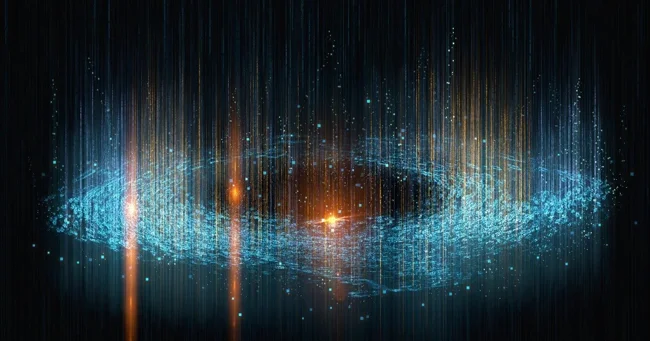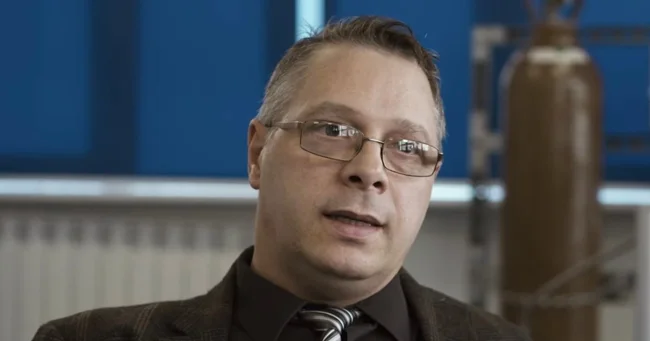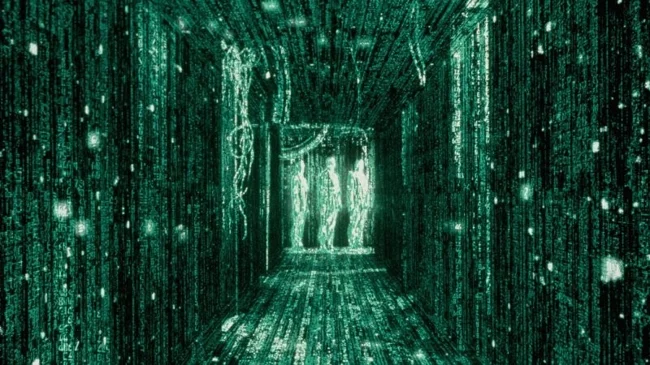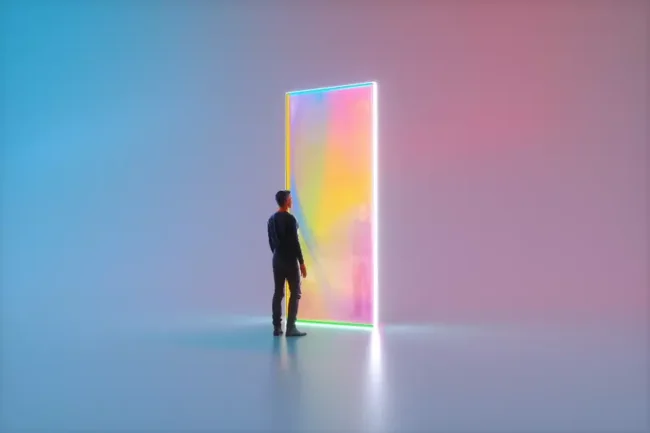Scientist found in Bible proof that we are just characters in the world of advanced AI (4 photos)
Do you feel like you're living in a computer simulation like in the movie The Matrix? According to a professor of physics at the University of Portsmouth, you have reason to think so. And the proof may be hidden in the Bible. 
Professor Melvin Vopson said: "The Bible itself tells us that we are in a simulation, and also who is creating it. It is AI - artificial intelligence."
The Briton refers to the Gospel of John, the fourth book of the New Testament. And it begins with the phrase: "In the beginning was the Word, and the Word was with God, and the Word was God."
The scientist believes that "the Word" refers to the underlying computer code that runs and controls the simulation.
He also argues that "the Word was God" could mean that God is part of the simulation, not separate from it.
In other words, the entity that runs everything - God - is also written in code.
Vopson explains: "The code that runs the simulation is not separate from the divine, but rather is an integral part of it, perhaps an AI." 
The Gospel of John says: "All things came into being through Him, and without Him nothing came into being that came into being."
Again, this statement confirms the simulation theory, the academic believes.
"It implies a Creator who created a simulated universe using the Word, that is, code. The act of creation described in the Bible can be analogous to the act of programming and modeling," he says.
The theory offers an answer to a question that haunts many Christians: how did God create the world in six days? He did it by creating a simulated reality contained in a computer program.
"It is noteworthy that this interpretation is completely consistent with the events of our time (the emergence of AI), and also exactly matches what was depicted in The Matrix. 
According to Vopson, faith in the theory of a simulated Universe and the religious need for an omnipotent creator can coexist harmoniously.
The professor previously mentioned that our lives are full of clues that we are just characters in an advanced virtual world.
For example, the fact that there are limits to the speed of light and sound, suggests that they may be controlled by the speed of a computer processor.
The laws of physics that govern the universe are also like computer code, and the elementary particles that make up matter are like pixels.
Vopson also believes that the abundance of symmetry in the world, from flowers to butterflies to snowflakes, is an energy-saving technique that machines use to visualize the world. 
Professor Vopson is not the only one to subscribe to the simulation theory. It is popular among a number of famous people, including Tesla founder Elon Musk and astrophysicist Neil deGrasse Tyson.
At a conference in 2016, Musk said the odds that we live in a base reality, rather than a simulated one, are one in a billion.
"Base reality" is a term from a theory about the existence of many false realities from which we need to somehow wake up, like in the movie "Inception".
























